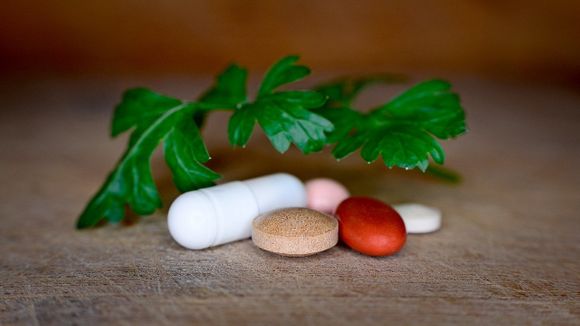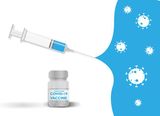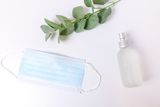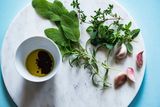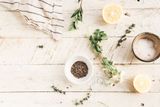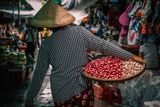Text adaptation: Rositsa Tashkova, Master of Molecular Biology and Microbiology
Aspirin, ibuprofen (Nurofen) and paracetamol (acetaminophen) are among the most commonly used anti-inflammatory and analgesic agents. These medications are also among the most prescribed in connection with both the treatment and prevention of COVID-19, as well as for the relief of side effects after vaccination (fever, headache). Therefore, it is important to know which herbs to avoid in these moments.
Aspirin is also used by many people as a prophylactic agent - in thrombophilia and for maintaining the cardiovascular system, since it has the property of thinning the blood - it is a platelet antiaggregant and prevents the formation of thrombs in blood vessels.
Ibuprofen (known as Nurofen) also belongs to the class of nonsteroidal anti-inflammatory drugs (NSAIDs) and is among the most commonly used medications for pain relief, fever and suppressing inflammation. The combination of ibuprofen and aspirin can be very dangerous! It is good to avoid taking it with drugs that have anticoagulant and antiaggregant effect (blood thinners).
Due to the accessibility of these drugs and their widespread use, we hardly think about their potential negative interactions with another type of therapy, which we are also used to percieving as harmless - the herbal therapy. In this article you will learn which herbs and medicinal plants should not be taken when using these medications.
The information comes from the article Herbal medication: potential for adverse interactions with analgesic drugs [ref.1].
Aspirin and ibuprofen - which herbs to avoid
Nonsteroidal anti-inflammatory drugs (NSAIDs), especially aspirin, have the potential to interact with herbal supplements known to have antiplatelet activity with those containing coumarin and with tamarind, which increases the risk of bleeding. It is good not to use these herbs when taking aspirin or ibuprofen to avoid severe bleeding.

Herbs with antiplatelet activity:
- Ginkgo biloba,
- Garlic (Allium sativum),
- Ginger (Zingiber officinale),
- Blueberry (Vaccinium),
- Dong Quai or also called Danggui and female ginseng (Angelica sinensis),
- Feverfew (Tanacetum parthenium),
- Ginseng (Panax ginseng),
- Turmeric (Curcuma longa),
- Meadowsweet or mead wort (Filipendula ulmaria)
- Willow (Salix) - a substance called salicyl is extracted from the young willow twigs, and then is used to produce aspirin (acetylsalicylic acid).
Herbs that contain coumarin:
- Chamomile (Matricaria chamomilla),
- Herbs of the genus Leonurus, e.g. motherwort (Leonurus cardiaca),
- Horse chestnut (Aesculus hippocastanum),
- Fenugreek (Trigonella foenum-grecum)
- Red clover (Trifolium pratense).
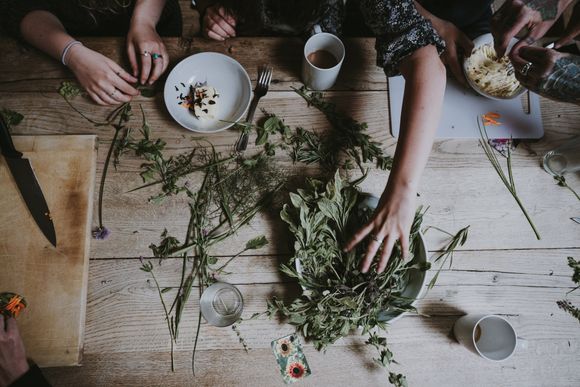
Paracetamol - which herbs to avoid
Paracetamol (acetaminophen) may also interact with ginkgo and possibly with at least some of the above mentioned herbs, which may increase the risk of bleeding.
In addition, the frequency of hepatotoxicity and nephrotoxicity (damage to the liver and kidneys) can be increased by paracetamol when used simultaneously with potentially hepatotoxic herbs Echinacea purpurea and kava (Piper methysticum), and with herbs containing salicylate respectively - for example, willow and meadowsweet.
Opioid painkillers- which herbs to avoid
Simultaneous use of opioid painkillers with sedative herbal supplements, such as kava, chamomile and valerian (Valeriana officinalis), can lead to increased suppression of the central nervous system.
The analgesic effect of opioids can also be suppressed by ginseng.
It is important that both doctors and patients are aware of potential adverse interactions between herbal supplements and pain medications and take appropriate precautions to avoid their possible occurrence.
